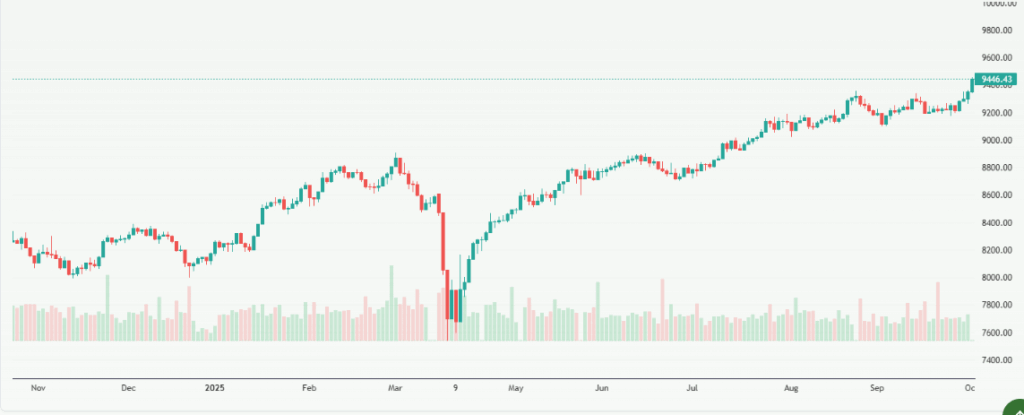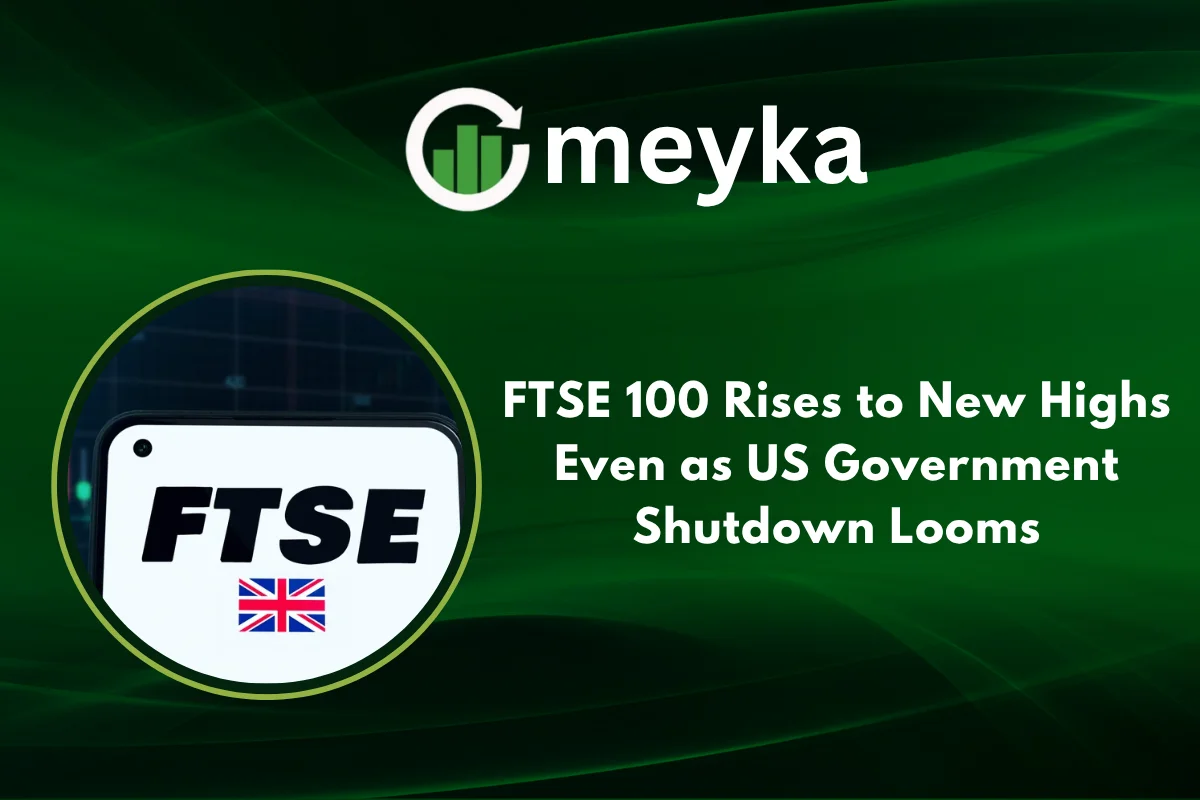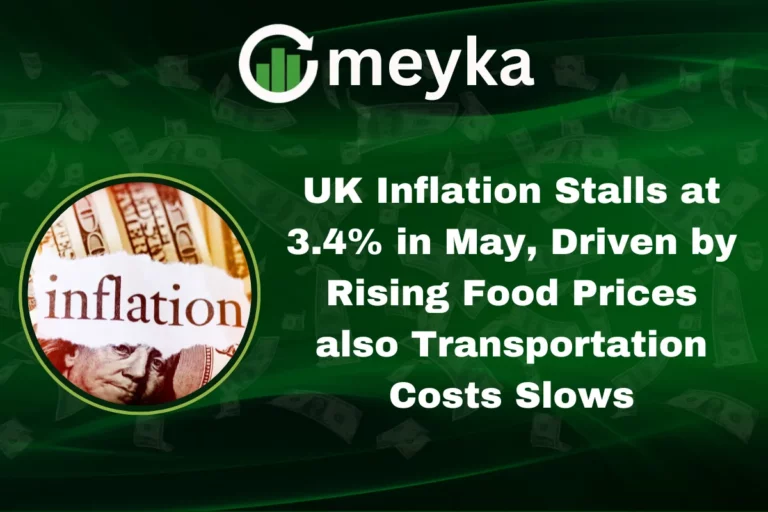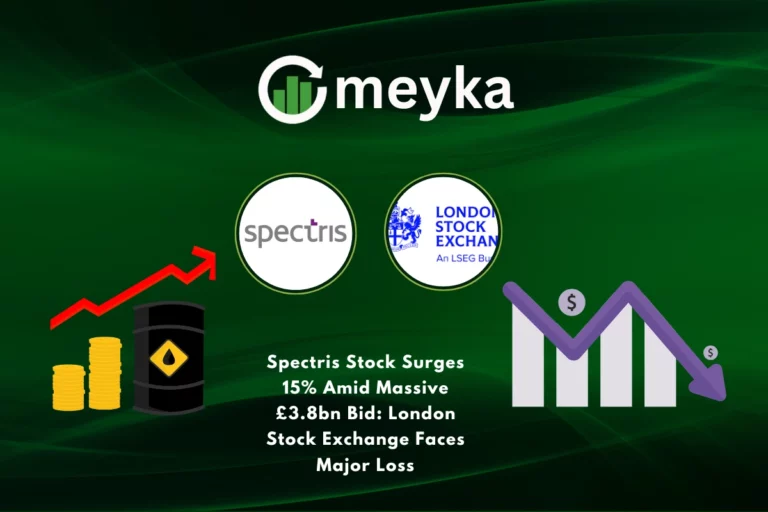FTSE 100 Rises to New Highs Even as US Government Shutdown Looms
The FTSE 100 has reached new highs this week, defying global uncertainty and concerns about a looming US government shutdown. Despite political gridlock in Washington, investor sentiment in London remains buoyant, with stronger corporate earnings and resilient energy prices fueling optimism. This rally highlights the market’s ability to absorb global headwinds while capitalizing on sector strengths.
Why the FTSE 100 is Rising Despite Global Concerns
The FTSE 100 index, which tracks the top 100 companies listed on the London Stock Exchange, has seen a surge in recent trading sessions. Much of this momentum is driven by robust performances in oil, mining, and banking stocks, sectors that dominate the index.

Energy prices have remained elevated due to tightening supply from OPEC+ cuts, providing a boost to firms like BP and Shell. At the same time, miners such as Rio Tinto and Glencore benefit from resilient demand for metals amid infrastructure spending and a push for green energy transitions worldwide.
Meanwhile, the financial sector has gained strength as interest rates remain relatively high, supporting banks’ margins. Institutions such as HSBC and Barclays have seen their stock values rise, lifting the broader index.
Impact of the US Government Shutdown Risks
While the UK market is hitting new highs, Wall Street remains under pressure. The possibility of a US government shutdown has raised fears of economic slowdown and volatility in American equities. According to the Congressional Budget Office, even a short shutdown could shave billions off US GDP, hitting consumer confidence and federal operations.
Historically, shutdowns have rattled investor confidence worldwide, but this time, the FTSE 100 appears more insulated. The UK market’s heavy exposure to global commodities and international banking makes it less sensitive to US fiscal disruptions compared to indices like the S&P 500 or Nasdaq, which are tech-heavy.
That said, a prolonged shutdown could still have knock-on effects, particularly for multinational firms listed in London that rely on US revenues.
AI Stocks and the Broader Stock Market Landscape
Beyond traditional sectors, global interest in AI stocks continues to dominate investment discussions. While the FTSE 100 has limited exposure to pure-play artificial intelligence firms, investor enthusiasm for tech innovation has influenced global market trends.
US tech giants, many of which are leading in AI development, have seen heightened volatility due to policy uncertainty. Yet, UK investors are increasingly looking toward AI-related opportunities in the mid-cap FTSE 250 and in overseas markets. This trend reflects a shift in stock research priorities, as portfolio managers seek to balance traditional blue-chip holdings with emerging growth themes.
How Investors Are Positioning Themselves
Amid rising equity valuations, investors are focusing on diversification and resilience. Market analysts recommend a balanced approach that includes exposure to energy, commodities, and defensive stocks, which tend to perform well during periods of global uncertainty.
At the same time, active stock research has become essential. Investors are not only tracking central bank policy from the Bank of England and the Federal Reserve, but also monitoring geopolitical developments, including US fiscal policy and global trade dynamics.
Long-term investors are advised to keep an eye on the fundamentals of companies within the FTSE 100, as many of them generate significant earnings abroad, making them less reliant on domestic UK economic growth.
UK Economy and Currency Factors
The performance of the FTSE 100 also reflects the state of the British pound. A weaker sterling often supports the index, since many of its companies earn revenue in dollars or other foreign currencies. This currency dynamic has provided an additional lift to the market, particularly as traders remain cautious about the UK’s economic outlook.
While the Bank of England has paused rate hikes after a series of increases aimed at curbing inflation, uncertainty remains over the long-term trajectory of growth. Despite this, global investors continue to view London-listed blue-chip stocks as a stable hedge against global volatility.
Future Outlook: Can the FTSE 100 Maintain Momentum?
Looking ahead, the question is whether the FTSE 100 can sustain its momentum. Key drivers will include:
- Energy Prices: Continued strength in oil and gas prices will support major energy stocks.
- Global Growth: Demand for industrial metals and resources will shape mining performance.
- Monetary Policy: Decisions from central banks in both the UK and the US will affect investor sentiment.
- Geopolitical Stability: The outcome of US budget negotiations and fiscal policy could trigger broader market shifts.
If global growth stabilizes and political risks ease, the index may continue its upward trajectory. However, any prolonged US shutdown or recessionary signals could bring volatility back to London markets.
Conclusion
The FTSE 100’s rise to new highs underscores the strength and resilience of the UK stock market, even as the US government shutdown looms. Energy, mining, and banking stocks have provided crucial support, while investors remain cautiously optimistic about global growth prospects.
In a world of uncertainty, diversification, strong stock research, and awareness of global fiscal developments remain essential for navigating markets. The FTSE 100 may not be immune to external shocks, but its global exposure continues to make it an attractive index for both domestic and international investors.
FAQs
The FTSE 100 is supported by strong performances in energy, mining, and banking stocks, sectors less affected by US fiscal politics. Its global earnings base also provides resilience against domestic and US-specific risks.
A short shutdown may have a limited impact, but a prolonged one could hit global confidence, weaken demand for UK exports, and create volatility for multinational firms listed in London.
While the FTSE 100 does not include many pure AI companies, investor interest in AI stocks globally influences capital flows. UK investors often look beyond the FTSE 100 to mid-cap and international opportunities in the AI sector.
Disclaimer:
This content is made for learning only. It is not meant to give financial advice. Always check the facts yourself. Financial decisions need detailed research.






